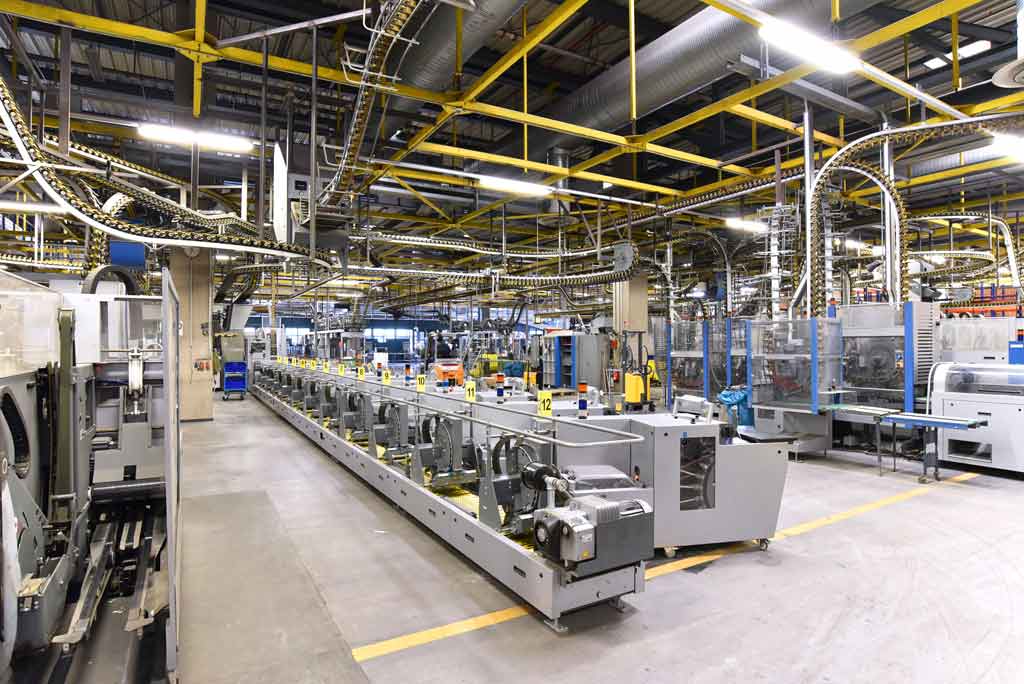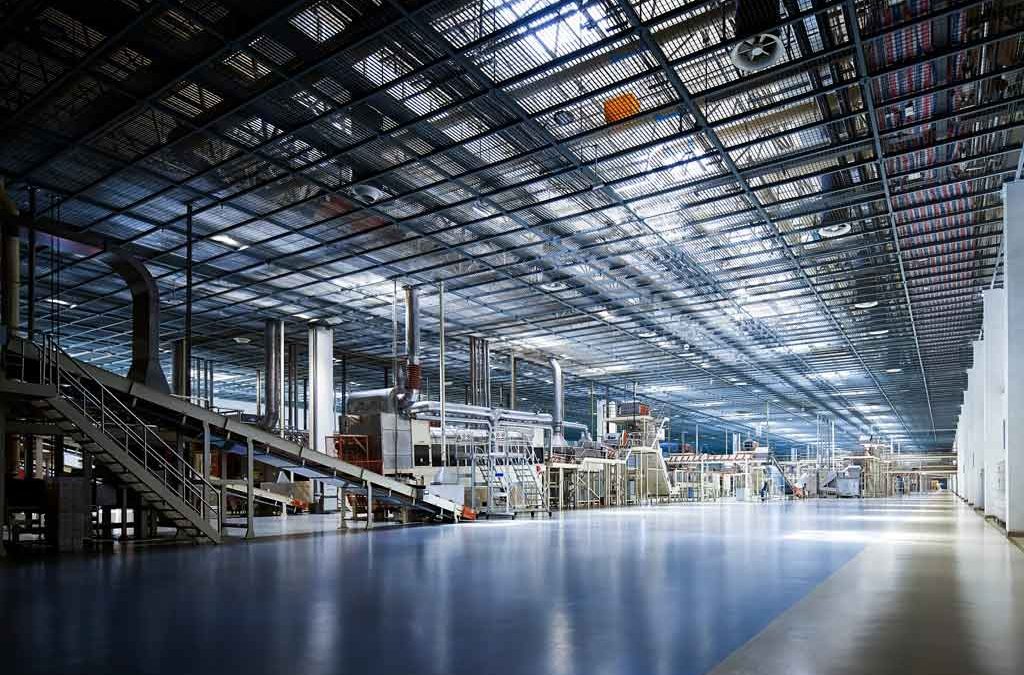Maintaining your factory flooring is essential to ensure a safe and efficient work environment. Factory floors endure heavy foot traffic, machinery, and chemical spills, so keeping them in top condition can be a challenge. Here are some practical tips to help you maintain and extend the life of your factory flooring.
Choose the Right Flooring System
The first step in maintaining your factory floor is selecting the right flooring system. There are various flooring types available, but industrial epoxy flooring is one of the most popular options.
It is highly resistant to chemicals, abrasion, and heavy-duty usage. Factory epoxy flooring provides a durable, high-performance surface that can withstand the daily rigors of industrial settings.
Urethane Cement Flooring Systems
Urethane cement flooring systems offer a robust and versatile solution for industrial environments. These flooring systems are highly resistant to thermal shock, making them ideal for areas exposed to extreme temperature fluctuations. Urethane cement is also resistant to chemicals, heavy impacts, and abrasions, ensuring long-lasting durability.
This type of flooring is particularly suitable for food processing facilities, breweries, and pharmaceutical plants where hygiene and safety are paramount. Its seamless application minimizes the risk of bacterial growth and provides a non-slip surface, enhancing workplace safety.
MMA Systems for Fast Installation and Limited Downtime Flooring Solutions
Methyl methacrylate (MMA) flooring systems are designed for industries where time is of the essence. MMA systems cure rapidly, often within an hour, allowing for minimal disruption to your operations. This makes them an excellent choice for facilities that require quick turnaround times, such as warehouses, manufacturing plants, and retail environments. MMA floors offer excellent chemical and abrasion resistance, ensuring a durable and long-lasting surface. Additionally, they can be installed in a variety of temperatures, making them a versatile option for different industrial settings.
Industrial Epoxy Systems
Industrial epoxy systems are a popular choice for factory flooring due to their exceptional durability and versatility. These systems provide a high-performance surface that can withstand heavy foot traffic, machinery, and chemical spills.
Epoxy coatings are also customizable, offering various options for color, texture, and anti-slip properties to suit the specific needs of your facility. Their seamless finish not only enhances the appearance of your factory floor but also makes it easier to clean and maintain.
Epoxy flooring systems are ideal for a wide range of industries, including automotive, electronics, and food processing.
Regular Cleaning and Maintenance
Keeping your factory floor clean is crucial for longevity. Dirt, debris, and spills can cause damage over time. Here are some tips for effective cleaning:
- Daily Sweeping and Mopping: Sweep the floor daily to remove loose dirt and debris. Follow up with mopping using a mild detergent to remove any remaining grime.
- Address Spills Immediately: Chemical spills can damage epoxy flooring if not cleaned promptly. Use appropriate cleaning agents to neutralize spills and prevent staining or corrosion.
- Scheduled Deep Cleaning: Periodically deep clean your factory floor with specialized cleaning products designed for epoxy floor coatings. This will help maintain the floor’s appearance and performance.
Protect High-Traffic Areas
High-traffic areas are prone to wear and tear. Implementing protective measures can help extend the life of your factory flooring:
- Use Floor Mats: Place mats at entry points to capture dirt and moisture before it reaches the floor.
- Install Protective Coatings: Consider adding an extra layer of factory floor epoxy coating in areas with the most traffic. This can provide additional abrasion resistance and prolong the life of the flooring.

Implement Proper Maintenance Procedures
Regular maintenance procedures are essential to keep your factory floor in good condition. Here are some best practices:
- Routine Inspections: Regularly inspect your flooring for signs of damage or wear. Look for cracks, chips, or areas where the coating may be wearing thin.
- Repair Damage Promptly: Address any damage immediately to prevent it from worsening. Small repairs can prevent more extensive and costly damage down the line.
- Reapply Coatings as Needed: Over time, the protective coatings on your epoxy factory floor may wear down. Reapplying these coatings can restore the floor’s durability and resistance.
Optimize Your Flooring for Chemical Resistance
Factories often deal with harsh chemicals that can degrade flooring materials. Epoxy floor coatings are known for their chemical resistance, but additional steps can further enhance this property:
- Use Chemical-Resistant Coatings: Ensure your epoxy flooring system includes a factory floor coating that is highly resistant to chemicals commonly used in your facility.
- Implement Spill Containment Strategies: Use spill containment pallets and barriers to minimize the spread of chemical spills and protect your flooring.
- Train Staff on Spill Response: Educate employees on proper spill response techniques to minimize damage to the floor.
Consider the Flooring Type
Different areas of your factory may require different types of flooring. Evaluate the specific needs of each area to determine the best flooring option:
- Heavy Machinery Areas: Use heavy-duty epoxy floor coatings that can withstand the weight and movement of machinery.
- Chemical Storage Areas: Opt for flooring products that offer superior chemical resistance.
- General Work Areas: Standard industrial epoxy floor coatings may be sufficient for areas with moderate traffic and minimal chemical exposure.
Enhance Abrasion Resistance
Abrasion is a common issue in industrial settings. Enhancing the abrasion resistance of your factory flooring can help maintain its appearance and functionality:
- Use Abrasion-Resistant Coatings: Select epoxy floor coatings with added abrasion resistance for areas subject to heavy wear.
- Implement Protective Measures: Use floor protectors and pads under equipment and furniture to prevent scratching and gouging.
The Bottom Line
Maintaining and extending the life of your factory flooring requires a combination of proper cleaning, regular maintenance, and choosing the right flooring system. By investing in high-performance, abrasion-resistant epoxy coatings and following these maintenance tips, you can ensure your factory floor remains in excellent condition for years to come. Remember, a well-maintained floor not only enhances the safety and efficiency of your facility but also reflects your commitment to quality and professionalism.
Request a Flooring Quote Today

